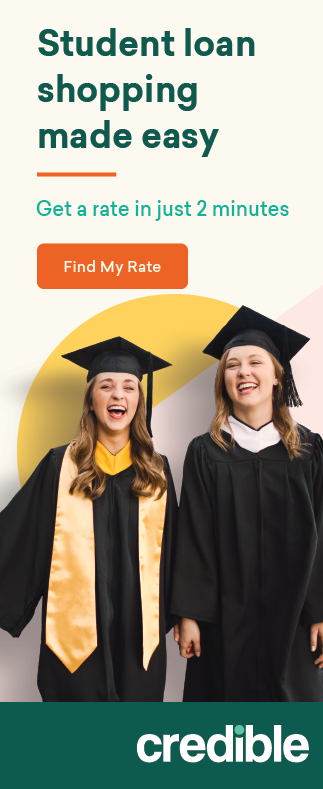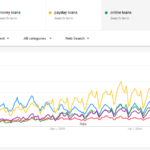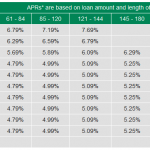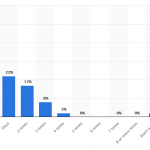
Apply For Student Loans Online Fast
Student Loans
Don’t Be a Slave to your Student Loans after College Graduation
There is no doubting the importance of a good education. After all, as the old adage says, knowledge is power. Self-empowerment is vital to personal growth and progress. One way to secure this is going on to higher education. Unfortunately, pursuing further studies after high school is very expensive.
Majority of the ordinary population cannot afford to send themselves to college. Their savings aren’t enough to cover the high matriculation costs. Some have to work, but it’s still not enough. Others don’t even work so being able to secure that diploma becomes a pipe dream. Those who are really hell-bent on getting a good education rely on student loans. However, before plunging head first into and choosing this option, it is critical for you to understand how this type of loan works before you even sign that borrower’s contract.
Good Kind of Debt
Some see student loans as a form of investment, which makes the loan a good kind of debt or a tolerable form of liability. A good debt is seen as something is seen as something that is acceptable because the returns gained from obtaining that debt remain high. A good, quality education which may seem unattainable can be made into reality because of a student loan. The long-term benefit of this is that graduating from college ensures a higher company position or a better paying job. Data indicate that workers who have a bachelor’s degree have the potential to earn twenty thousand dollars more per year as compared to those who only finished with a high school education.
Proceed with Caution
Understand that getting a loan is not without its consequences. Thus, it is important to weigh everything before taking the plunge. Borrow wisely because the more you borrow, the more you’ll have to pay, and the harder it will be to repay. Some student loans are so big that they end up haunting the borrower way into adulthood. Hence, it is imperative to see what you can do to mitigate this burden. Working part-time to defray the cost is an activity most tertiary students do. Aside from earning money, you also learn significant life skills and rich experiences.
Another method would be to apply for grants and scholarship way ahead. Lodge an application to as many as you can because the worst that can happen is they will say no. But if you are actually awarded one, this can reduce the amount of money you’ll have to loan. Perhaps, it is also a good idea to consider state schools and those universities with less matriculation. Cutting costs in areas such as buying used books, eating out less, or doing away with inexpensive gadgets can help defray the costs.
The Nature of Student Loans
As the name implies, this type of credit is geared for funding an education. It totally makes them different from home loans and credit cards because they charge less, with lower interest rates. There is an easier approval time because most students don’t have much of a credit history. And what’s even vital, securing a loan like this can actually help improve your credit score.
Federal Student Loans
There are two types of loans—the federal student loans applied for through the United States government through the Department of Education. The benefits of this type of loan are: lower interest rates which do not fluctuate dramatically over time, a part of it may be subsidized, and lenders often see this as low risk because students possess the power to pay for it after graduation. The fixed interest rate, which is hard to beat, is what makes this type of loan attractive for those seeking an undergraduate degree, a master degree, or a post doctoral fellowship.
You can qualify for a student loan by filling out and submitting a FAFSA, also known as a Free Application for Federal Student Aid. Noteworthy, there are numerous benefits and levels of protection in securing this kind of loan. They allow loan forgiveness, loan deferment, and even options for repayment.

Apply For Student Loans Online Fast
Private Student Loans
After exhausting all your options and borrowing what you can from the federal government, it is now time to turn to private lenders should you still need more money to cover your college expenses. These lenders can be: online lending companies, credit unions, or the traditional banks. They do require you to apply for approval, and if you don’t have a good standing, you can get a co-maker to apply for the loan with you. Both of you will end up being responsible in ensuring that payments to the loan are made.
Unlike its federal counterpart, this type of loan can have variable interest, which makes it a bit risky. Be sure to speak to your loan consultant and read the contract fine print to understand all the details. For instance, a fixed rate loan can cost something like 4.5% per APR, but a variable one can be tempting at 3.99%. The danger of this option is having the interest fluctuate significantly with potential of it hiking to something like 7% in a season of economic uncertainty. This puts the borrower in a precarious position.
Use of Private Student Loans
This type of loan allows you to cover all education related expenditures. On top of that, it may also cover living expenses, which are hardly ever covered in federal student loans. College tuition fees, miscellaneous school expenses, and daily living expenses all add up. Again, rates of private loan may vary depending on a student’s situation and the financial capacity to pay. As stated above, a co signatory for the loan may be an important persona that has the capacity to make the loan happen and be granted for you. The amount of money you can borrow is dependent on many factors such as: your co-signers credentials, the cost of going to the school of your choice, your credit history, the type of degree you are pursuing, and the projected income you’re expected to make after graduation.
It is important to reiterate that private student loans can be used for costs pertaining to education and for expenses that have to do with daily life, not covered by federal student loans. These include college tuition fees, miscellaneous fees, books, project, food and rent. Interest rates and terms on private student loans can vary, depending on your needs, financial situation and credit history. In many cases, private student lenders will require the co-signer to vouch for you by co-signing all the legal documents. This co-signatory typically has good credit standing, and the lenders rely on this person’s credit score to give you the loan. On top of that, this has an effect on how much many can be borrowed. The specific amount to be released is dependent on the underwriting rules of the private lender.
Bad Credit Seeking a Private Student Loan
Don’t be completely disheartened if you have terrible credit and you’re applying for a private student loan. All hope is not lost, even if you are deemed as a riskier subject to the lending facility. You won’t get a flat out no. Rejection may suck, but at least, you can give the application the old college try. Having a terrible credit history would mean you really need a co-maker who will be willing to support you until the very end. Otherwise, you may have to suffer through higher interest rates or not being eligible for a loan at all.
Applying for a student loan shouldn’t be done haphazardly. Considering all these factors are necessary so you can make a wise decision. Always remember, weighing your options and laying the cards on the table are a vital part of the process because they will spell the difference in how much money you will ultimately end up borrowing, and the less money you borrow, the better it will be. The last thing you want to be after college graduation is to become a slave to your student loan.







